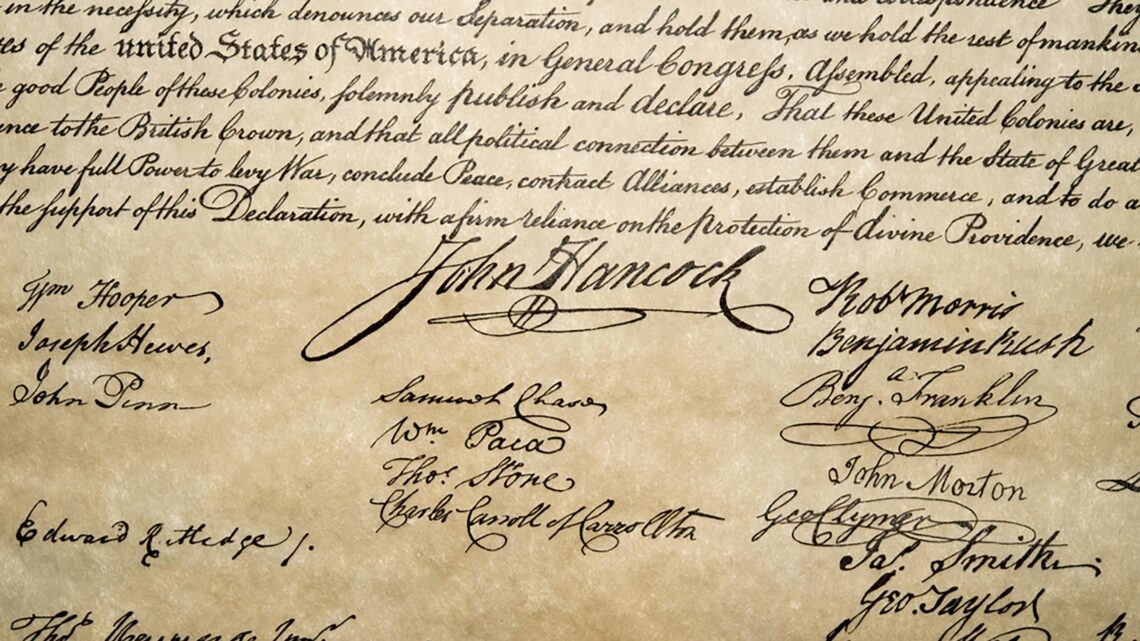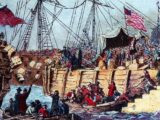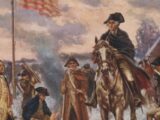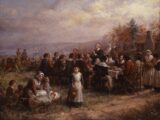
When was the last time you signed a petition or a letter of support or clicked a thumbs up on an online message? Did you want a street light at the end of your block, or want the City Council to approve a greenbelt? Did your signature cost you any money, take much time, endanger your safety?

Portrait of John Bernard Hancock Courtesy

Ben Franklin advised his 55 colleagues that “We must all hang together, or most assuredly, we will all hang separately.”
The 4th of July, Independence Day, has been a federal holiday since 1941, but celebrations date back to the American Revolution. Written in longhand mostly by Thomas Jefferson and adopted by delegates from the 13 colonies, The Declaration of Independence was copied and read to the public in Philadelphia, and sent out to the other colonies for public readings. Celebrations began immediately over the news of INDEPENDENCE!!!

John Adams wrote to his wife Abigail, “this day will be celebrated by succeeding Generations, as the great anniversary Festival”, and that the celebration should include “Pomp and parade…games, sports, guns, bells, bonfires and illuminations from one End of this continent to the other.”
In 1776, some colonists celebrated by holding mock funerals for King George III. Muskets and cannons were fired and the Declaration of Independence was read to all the crowds. As for hot dogs and ice cream…those came along later.
ON THIS MONTH IN HISTORY
July 1, 1862 – President Abraham Lincoln signed the first income tax bill, levying a 3% income tax on annual incomes of $600-$10,000 and a 5% tax on incomes over $10,000. Also on this day, the Bureau of Internal Revenue was established by an Act of Congress.
July 2, 1776 – The Continental Congress in Philadelphia adopted the following resolution, originally introduced on June 7, by Richard Henry Lee of Virginia: “Resolved, That these United Colonies are, and of right ought to be, free and independent States, that they are absolved from all allegiance to the British Crown, and that all political connection between them and the State of Great Britain is, and ought to be, totally dissolved. That it is expedient forthwith to take the most effectual measures for forming foreign Alliances. That a plan of confederation be prepared and transmitted to the respective Colonies for their consideration and approbation.”
July 2, 1788 – Congress announced the United States Constitution had been ratified by the required nine states and that a committee had been appointed to make preparations for the new American government.
July 4, 1776 – The Declaration of Independence was approved by the Continental Congress.
July 5, 1775 – The Continental Congress adopted the Olive Branch Petition expressing hope for a reconciliation with Britain. However, King George III refused even to look at the petition and instead issued a proclamation declaring the colonists to be in a state of open rebellion.
July 8, 1776 – The first public reading of the Declaration of Independence occurred as Colonel John Nixon read it to an assembled crowd in Philadelphia.
July 13, 1787 – Congress enacted the Northwest Ordinance establishing formal procedures for transforming territories into states. It provided for the eventual establishment of three to five states in the area north of the Ohio River, to be considered equal with the original 13. The Ordinance included a Bill of Rights that guaranteed freedom of religion, the right to trial by jury, public education and a ban on slavery in the Northwest.
July 31, 1790 – The U.S. Patent Office first opened its doors. The first U.S. patent was issued to Samuel Hopkins of Vermont for a new method of making pearlash and potash. The patent was signed by George Washington and Thomas Jefferson.
Courtesy of The History Place – www.historyplace.com
VLS MISSION STATEMENT
“Our mission is to develop the next generation of patriots, educating them on the values, the principles and the Judaeo-Christian foundation on which our country was created and to instill in them the need to be diligent in keeping our God-given freedoms and liberties.”



